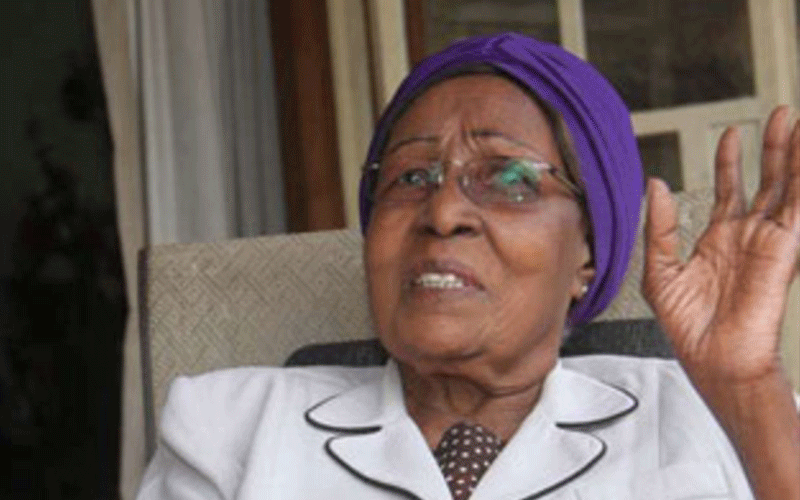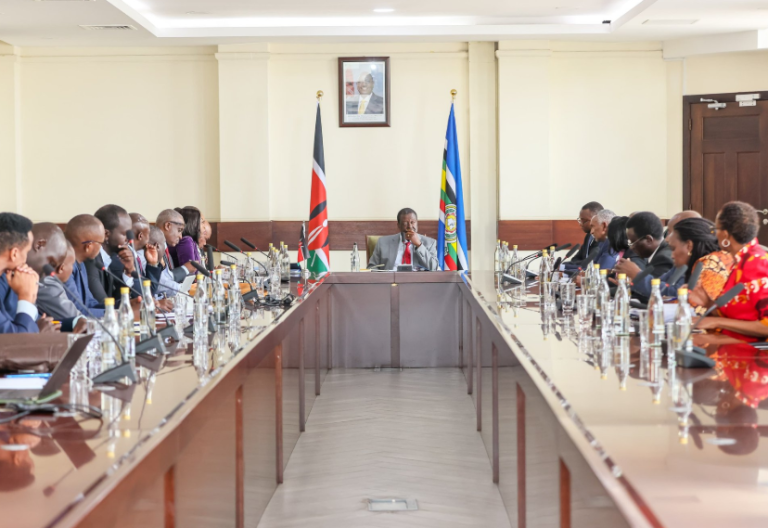Gecaga gets nod to evict mother from Muthaiga

Bernice Mbugua @BerniceMuhindi
Margaret Gacigi Gecaga, step mother of prominent city businessman Udi Gecaga, has suffered a big blow after the High Court declined to set aside an arbitral award which had allowed his step son to reclaim their palatial home in the upmarket Muthaiga suburb in Nairobi.
High Court Judge Grace Nzioka dismissed Gacigi’s application, saying she raised issues which were the subject of arbitration proceedings and which had already been addressed by the tribunal.
“The role of the court is not to re-evaluate the evidence adduced before the tribunal and replace it with its own decision,” ruled the judge.
Transfer documents
Gacigi had filed a suit in 2011 claiming Gecaga, a brother-in-law of President Uhuru Kenyatta, had fraudulently transferred to himself eight properties including the Muthaiga home, which were initially registered in her late husband’s name. The transfer happened between 2008 and 2011.
She claimed her matrimonial home was not capable of being transferred without her knowledge or consent of her late husband.
She argued the transfer of suit properties was null and void for want of a sale agreement, consideration and lack of requisite supporting transfer documents.
By consent of the parties, however, the dispute was referred to arbitration where the tribunal dismissed her claim in its entirety.
The tribunal found that the properties were purchased in the 1960s and 1970s when the elder Gecaga was married to his late wife , yet it was her own evidence that she was living with the deceased as husband and wife since 1993.
According to the tribunal, there was no evidence that she had cohabited with the elder Gecaga prior to their marriage.
Neither did she adduce evidence that she had contributed to the purchase and development of the properties or involved in their subdivision before marriage.
“The applicant herein had not adduced any evidence to prove that the Muthaiga properties were jointly owned or that it was acquired during the subsistence of the marriage,” the arbitration tribunal had ruled.
This prompted Gacigi to move to the High Court seeking to set aside the arbitration ruling, claiming the manner in which the tribunal dealt with the issues raised, showed a case of not only misapprehension of the law and failure to appreciate the legal issues and facts raised, but was selective in evaluation of evidence before it.
“The tribunal misdirected itself on its findings, in relation to issues as to whether; I had discharged the burden of proof on the account of the alleged fraud, the deceased’s capacity to execute the disputed transfers and the validity of transfers,” she had claimed in court documents.
She averred that the award goes against public policy, rule of law and fair administrative action, as the tribunal based its decision primarily on inadmissible evidence of Caroline Wanjihia (now deceased), which evidence had not been properly presented and admitted.
Justice Nzioka, however, dismissed all her arguments saying she was challenging the award on the ground that the tribunal misdirected itself on both matters of facts and law which would amount to exercising an appellate jurisdiction over the decision of the tribunal.
“The court has no jurisdiction to do so. One of the fundamental features of arbitration, is the final and binding determination of parties’ rights and obligations,” she ruled.
According to the judge, as a chosen alternative to court process or litigation, the decision of the parties is for the arbitrators to resolve the dispute in finality.
“Thus implied with the agreement to arbitrate is the acceptance that the strict rules of procedure and rights of appeal or challenge are limited to essential protection,” noted the judge.
“It is against this background and in the absence of evidence that the award herein is contrary to public policy that I find and hold that, the application has no merit and I dismiss it,” ruled Nzioka.








